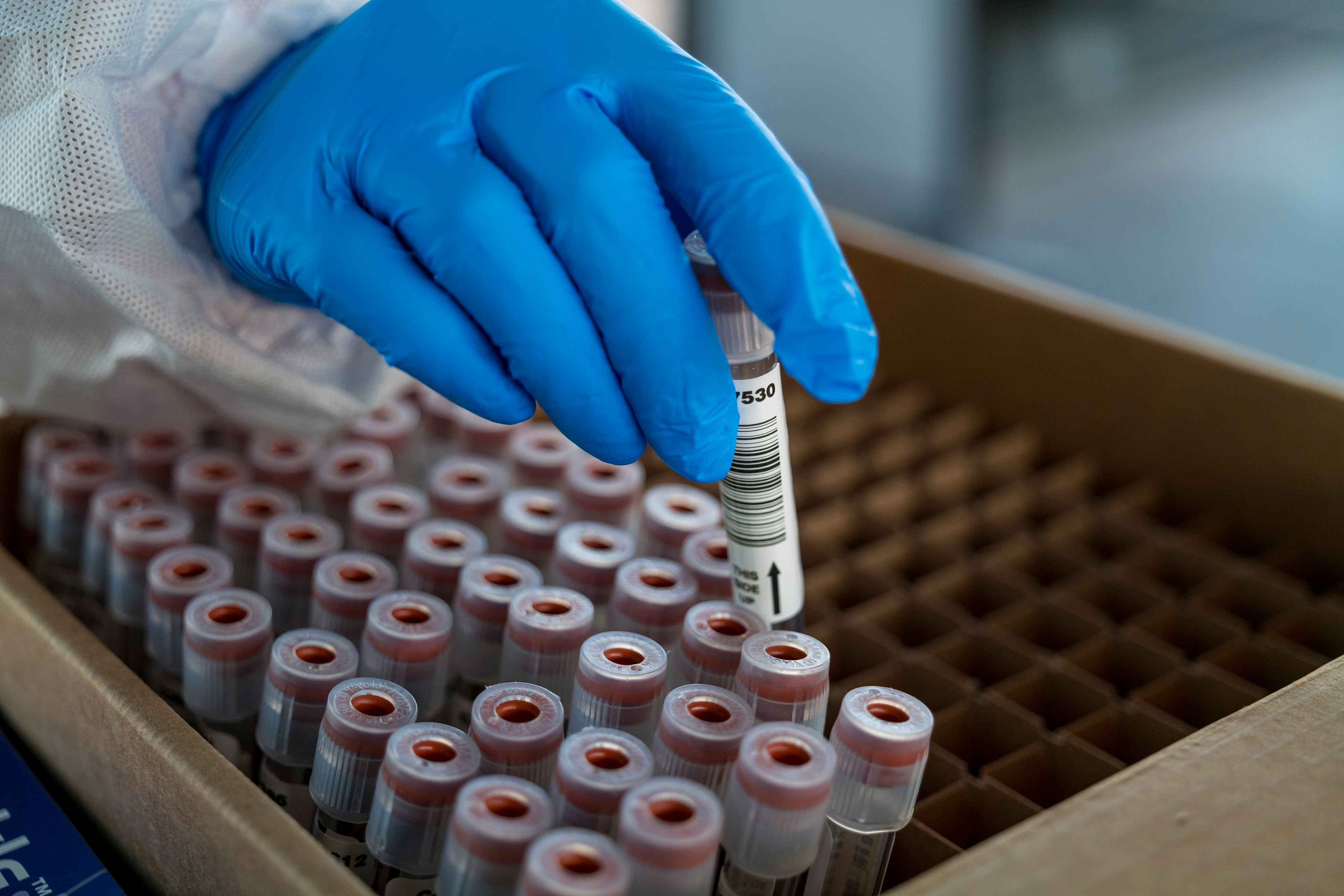FDA clears a ‘new generation’ of Covid antibody test designed to tell how well someone is protected against the virus

A medical worker wearing personal protective equipment (PPE) inserts a Covid-19 test tube into a box at a drive-thru testing site at the Alemany Farmers Market in San Francisco, California, U.S., on Thursday, Nov. 19, 2020.
David Paul Morris | Bloomberg | Getty Images
The FDA on Wednesday authorized one of the first Covid-19 tests that measures the amount of neutralizing antibodies produced by the body’s immune system after exposure to the virus — a “new generation” of coronavirus test that is designed to tell how well someone is protected against infection.
The body’s immune system produces antibodies to combat viruses and other foreign pathogens that invade the body. When it comes to Covid-19, it remains unclear how much protection antibodies provide and how long that might last, but this test could help researchers better understand the role of Covid antibodies in immune protection.
Unlike many previously authorized Covid antibody tests that can tell if you’ve had the virus or not, the COVID-SeroKlir test measures your specific levels of Covid-19 neutralizing antibodies. The Food and Drug Administration has previously authorized some tests that estimate the level of antibodies, but not specifically for neutralizing antibodies.
The FDA cautioned that much remains unknown about the nature of Covid-19 neutralizing antibodies in humans and that a high level of antibodies does not necessarily guarantee immunity against the virus.
But the new test is important because it can be used by researchers to further study the relationship between Covid-19 antibodies and protection against the virus. That’s relevant for protection generated by both previous Covid-19 exposure and by a vaccine, once one is distributed, which could be next month in the U.S.
The test was developed by Kantaro Biosciences, a joint venture between the Mt. Sinai Health System and Renalytix, a diagnostics start-up that went public earlier this year. Through a partnership with Bio-Techne, which has a valuation of $11.7 billion, the companies are now manufacturing about 10 million tests per month, Chief Commercial Innovation Officer at Mt. Sinai Erik Lium said in a phone interview.
“It’s going to broadly enable studies of immunity and the relationship between immunity and the level of antibodies that an individual has,” Lium said, adding that the technology is already being used in studies. “A second use of this test is in vaccination.”
Lium said the test could be used to determine who already has high levels of neutralizing antibodies due to previous exposure, and may not immediately need the vaccine. Lium said he’d “defer to public health officials” on decisions of how to allocate the limited doses, but added that it would “not be unreasonable to focus efforts on those who have no antibodies to Covid-19.”
Lium said it also gives patients and clinicians more information about immunity to the virus whether someone recovers from an infection or gets immunized. For example, he said, it could be used to evaluate the effect of a vaccine and whether it provoked a robust immune response in someone, he said.
“As we understand the relationship between the amount of antibodies that an individual has to these key components of the virus and immunity, a test like this can really start to provide peace of mind once we understand that relationship in the coming months,” he said.
Kantaro said the test has demonstrated 98.8% sensitivity and 99.6% specificity for detecting Covid-19 antibodies against two virus antigens, the full-length spike protein and its receptor-binding domain, two key elements of this virus. That means 98.8% of all positive diagnoses are accurate and 99.6% of all negative diagnoses are correct.
“We think that our test is really one of the first in a new generation of antibody tests that provide much more meaningful information to individuals and clinicians on whether an individual’s been infected and developed an immune response,” Lium said, “and then what’s the level of antibodies that they have.”
The test uses a blood sample and must be processed in a clinical laboratory, but it does not require any proprietary equipment, Kantaro said. It received a CE mark from European regulators in October and is in use in the European Union.
“With this EUA in hand, we are ready to immediately supply this best-in-class serologic assay to clinicians across the U.S.,” Chuck Kummeth, CEO of Bio-Techne, said in a statement. “We anticipate that COVID-SeroKlir will play an increasingly important role in the decision making of healthcare providers and policymakers and are prepared to scale up to meet additional demand.”




